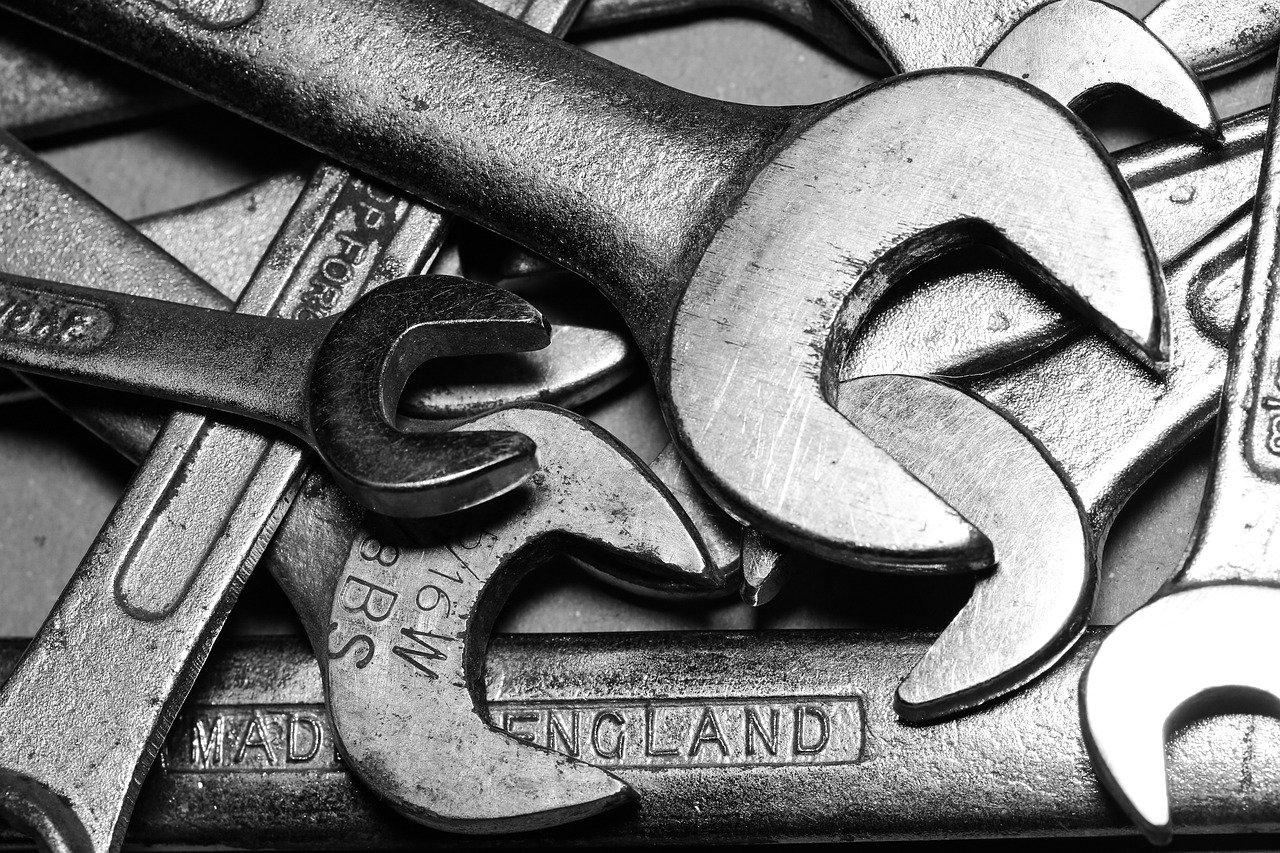The 2012 Honda Accord remains a popular choice among used car buyers due to its reliability, comfort, and overall value. Understanding the current market value of this vehicle is essential for both buyers and sellers. This article delves into the various factors that influence the worth of a 2012 Honda Accord, providing a comprehensive overview to help you navigate the used car market.
Several key elements play a significant role in determining the market value of a 2012 Honda Accord. These include:
- Mileage: The distance a car has traveled can greatly impact its value.
- Condition: The overall state of the vehicle, including both interior and exterior quality.
- Trim Level: Different trims offer varying features and amenities, affecting desirability.
- Geographical Location: Market demand can fluctuate based on the region where the car is sold.
Mileage is a critical factor in assessing the value of any vehicle, including the 2012 Honda Accord. Generally, lower mileage correlates with a higher resale value due to perceived reliability. For instance, vehicles with mileage under 60,000 miles are often considered low mileage and can command a premium price.
For the 2012 Honda Accord, low mileage is typically regarded as being under 60,000 miles. Such vehicles tend to attract buyers looking for a dependable option with less wear and tear.
Conversely, high mileage can lead to depreciation in value. Potential buyers may express concerns about the vehicle’s wear and tear, maintenance needs, and overall longevity, thus driving the price down.
The 2012 Honda Accord is available in several trim levels, including the LX, EX, and EX-L. Each trim offers different features that cater to various consumer preferences, and this can significantly influence market value.
Among the trims, the EX-L is often regarded as holding its value better due to its premium features and amenities, appealing to a broader range of buyers.
The overall condition of a 2012 Honda Accord, including exterior and interior quality, maintenance history, and accident history, plays a crucial role in determining its market value. A well-maintained vehicle can justify a higher asking price.
Assessing the condition involves a thorough inspection of the vehicle’s exterior, interior, and mechanical components, along with reviewing service records to ensure proper maintenance.
Significant repairs, such as engine or transmission work, can negatively impact a vehicle’s value. However, consistent maintenance can enhance buyer confidence and justify a higher asking price.
The geographical location where the 2012 Honda Accord is sold can significantly affect its market value. Regions with higher demand for reliable sedans may see increased pricing compared to areas where demand is lower.
Urban areas often have a higher demand for reliable sedans, which can lead to increased pricing for the 2012 Honda Accord. In contrast, rural locations may experience lower demand, affecting the resale value.
Researching local market trends involves checking online listings, visiting dealerships, and utilizing valuation tools to gauge the average selling price of similar vehicles in your area.
Utilizing reliable resources such as Kelley Blue Book, Edmunds, and NADA Guides can provide accurate valuations and insights into the current market worth of the 2012 Honda Accord.
Using online valuation tools effectively requires inputting accurate vehicle information, including mileage, condition, and trim level, to receive the most precise value estimate.
Buyers should also take into account market trends, seasonal fluctuations, and the vehicle’s history report to make informed decisions when evaluating the worth of a 2012 Honda Accord.

What Factors Influence the Value of a 2012 Honda Accord?
The market value of a 2012 Honda Accord is influenced by a variety of factors that potential buyers and sellers should consider. Understanding these elements can help in making informed decisions whether you are buying or selling this popular sedan. Below, we delve into the key factors that impact the value of a 2012 Honda Accord.
Several key factors determine the market value of a 2012 Honda Accord, including:
- Mileage
- Condition
- Trim Level
- Geographical Location
Each of these factors plays a significant role in pricing, influencing how much buyers are willing to pay and how sellers should price their vehicles.
Mileage is a critical factor in assessing the value of any vehicle, including the 2012 Honda Accord. Generally, lower mileage correlates with a higher resale value because it indicates less wear and tear. A vehicle that has been driven less is often perceived as more reliable.
For a 2012 Honda Accord, low mileage is considered to be under 60,000 miles. Vehicles in this mileage range typically attract more buyers, as they are seen as having a longer lifespan ahead.
Conversely, high mileage can lead to depreciation in value. Potential buyers may be concerned about the vehicle’s wear and tear, maintenance needs, and overall longevity, which can make them hesitant to pay a premium price.
The 2012 Honda Accord comes in several trim levels, including the LX, EX, and EX-L. Each trim offers different features and amenities that can greatly influence its market value.
Each trim level caters to different consumer preferences:
- LX: Basic features, ideal for budget-conscious buyers.
- EX: Additional features for enhanced comfort and style.
- EX-L: Premium amenities that appeal to a broader range of buyers.
Among the trims, the EX-L is often regarded as holding its value better due to its premium features and amenities, making it more desirable in the used car market.
The overall condition of a 2012 Honda Accord significantly impacts its market value. Factors such as exterior and interior quality, maintenance history, and any accident history are crucial in determining how much buyers are willing to pay.
To assess the condition, a thorough inspection of the vehicle’s exterior, interior, and mechanical components is necessary. Additionally, reviewing service records can ensure proper maintenance, which can justify a higher asking price.
Significant repairs, such as engine or transmission work, can negatively impact the vehicle’s value. On the other hand, consistent maintenance can enhance buyer confidence and justify a higher asking price.
The geographical location where the 2012 Honda Accord is sold can significantly affect its market value. Demand and supply dynamics vary across regions, impacting pricing.
Regions with a higher demand for reliable sedans, such as urban areas, may see increased pricing for the 2012 Honda Accord compared to rural areas where demand is lower.
Researching local market trends can be done by checking online listings, visiting dealerships, and utilizing valuation tools to gauge the average selling price of similar vehicles in your area.
Utilizing reliable resources such as Kelley Blue Book, Edmunds, and NADA Guides can provide accurate valuations and insights into the current market worth of the 2012 Honda Accord.
To use online valuation tools effectively, ensure accurate input of vehicle information, including mileage, condition, and trim level, to receive the most precise value estimate.
Lastly, buyers should also consider market trends, seasonal fluctuations, and the vehicle’s history report to make informed decisions when evaluating the worth of a 2012 Honda Accord.

How Does Mileage Impact the Value?
Mileage is one of the most significant factors influencing the value of a vehicle, particularly for models like the 2012 Honda Accord. As prospective buyers assess the worth of a used car, they often look closely at its mileage as an indicator of overall condition and reliability. Generally, vehicles with lower mileage are perceived to be more reliable and less likely to require significant repairs, which can drive their resale value higher.
When evaluating any vehicle, including the 2012 Honda Accord, mileage serves as a key metric. Lower mileage typically correlates with a higher resale value because it suggests that the car has experienced less wear and tear. For instance, a Honda Accord with mileage under 60,000 miles is often considered low mileage and can command a premium price in the market.
For the 2012 Honda Accord, low mileage is generally defined as being under 60,000 miles. Vehicles that fall within this range are often more attractive to buyers, as they are perceived to have a longer lifespan ahead. This perception can significantly enhance the vehicle’s market appeal and value.
Conversely, high mileage can lead to a depreciation in value. When potential buyers see a vehicle with over 100,000 miles, they may express concerns about potential maintenance needs and the overall longevity of the vehicle. High mileage can imply that the vehicle has undergone more rigorous use, which can lead to increased wear on critical components like the engine and transmission.
It’s essential to consider not just the mileage but also the vehicle’s maintenance history. A well-maintained car, regardless of its mileage, can still hold its value. For instance, a 2012 Honda Accord with 80,000 miles that has been regularly serviced and has a clean maintenance record may be worth more than a similar model with 50,000 miles but a spotty service history. Buyers should always request service records to assess how well the vehicle has been cared for.
When assessing the value of a 2012 Honda Accord, it’s crucial to consider mileage in conjunction with other factors, such as condition, trim level, and geographical location. For example, a car with high mileage may still be a good buy if it’s in excellent condition and has desirable features. On the other hand, a low-mileage car that has been poorly maintained may not be worth the asking price.
In summary, mileage is a critical factor in determining the value of a 2012 Honda Accord. Lower mileage often leads to higher resale values due to perceived reliability. However, it is essential to evaluate this metric alongside other factors such as maintenance history and overall condition to make a well-informed purchasing decision. Buyers should conduct thorough research and possibly consult with experts to ensure they are getting the best deal possible.
What is Considered Low Mileage for a 2012 Honda Accord?
When evaluating the worth of a 2012 Honda Accord, one of the most significant factors to consider is its mileage. Mileage not only reflects the usage of the vehicle but also impacts its overall value in the market. In general, low mileage is classified as under 60,000 miles for this model year. Vehicles with low mileage often appeal more to buyers, as they are perceived to be in better condition and have a longer lifespan ahead.
Low mileage is crucial for several reasons:
- Perceived Reliability: Vehicles with lower mileage are often viewed as more reliable, which can lead to higher demand.
- Less Wear and Tear: A car that has been driven less is likely to have experienced less wear and tear on its components.
- Higher Resale Value: Low mileage can significantly increase the resale value of a vehicle, making it a more attractive option for potential buyers.
The market appeal of a 2012 Honda Accord with low mileage can be significantly higher than those with higher mileage. Buyers are often willing to pay a premium for a vehicle that has been driven less. This is especially true in competitive markets where consumers are looking for reliable and long-lasting options.
For context, the average mileage for a vehicle is typically around 12,000 to 15,000 miles per year. Therefore, a 2012 model, which is over a decade old, would generally have between 120,000 to 180,000 miles if it were driven normally. A Honda Accord with less than 60,000 miles stands out significantly in this regard.
Investing in a low mileage Honda Accord can offer various advantages:
- Lower Maintenance Costs: With fewer miles, there is often less immediate need for repairs and maintenance.
- Extended Lifespan: A vehicle with low mileage is likely to have a longer operational lifespan, making it a better long-term investment.
- Better Fuel Efficiency: Newer vehicles, especially those driven less, tend to maintain their fuel efficiency better than those that have been heavily used.
When considering a low mileage 2012 Honda Accord, buyers should also assess:
- Service History: Ensure that the vehicle has been well maintained and serviced regularly.
- Accident History: Check if the car has been involved in any accidents, which can affect its value and reliability.
- Overall Condition: Inspect the vehicle’s exterior and interior for signs of wear and tear, regardless of mileage.
In summary, a 2012 Honda Accord with low mileage, typically considered to be under 60,000 miles, can significantly enhance its market appeal and value. Understanding the implications of mileage, alongside other factors such as condition and service history, can help potential buyers make informed decisions. Ultimately, a low mileage vehicle can provide greater reliability, lower maintenance costs, and a better overall value in the long run.
How Does High Mileage Affect Pricing?
When evaluating the market value of a vehicle, mileage stands out as a pivotal factor, particularly for the 2012 Honda Accord. As a vehicle accumulates miles, potential buyers often associate high mileage with increased wear and tear, leading to concerns about the car’s overall reliability and future maintenance needs. Understanding how high mileage impacts pricing is essential for both sellers and buyers in the used car market.
High mileage can significantly depreciate the value of a vehicle for several reasons:
- Perceived Wear and Tear: Buyers often worry that high mileage indicates a vehicle has been heavily used, which can translate to more frequent repairs and potential issues down the line.
- Maintenance Needs: A vehicle with high mileage may require more maintenance, such as replacing brakes, tires, and other components that wear out over time, raising concerns for buyers about upcoming costs.
- Longevity Concerns: Potential buyers may doubt the overall longevity of a high-mileage vehicle, fearing it may not last as long as a lower-mileage counterpart.
For the 2012 Honda Accord, anything over 100,000 miles is generally considered high mileage. At this point, the vehicle’s value can drop significantly, especially if it lacks a comprehensive maintenance history. Buyers may be more hesitant to invest in a car that has been driven extensively.
While mileage is critical, it’s essential to consider it alongside other factors that influence the vehicle’s value:
- Condition: A well-maintained high-mileage vehicle may still hold value if it has a clean history and good mechanical condition.
- Trim Level: Higher trim levels with more features may retain value better, even with higher mileage.
- Market Demand: In some regions, high mileage may be less of a concern if the demand for reliable vehicles is high.
Sellers can take steps to mitigate the negative effects of high mileage on the vehicle’s value:
- Maintain Documentation: Keeping detailed service records can reassure potential buyers about the vehicle’s upkeep.
- Highlight Features: Emphasizing desirable features and recent upgrades can help offset concerns related to mileage.
- Offer a Competitive Price: Pricing the vehicle competitively can attract buyers who might otherwise be deterred by high mileage.
There are instances where high mileage does not drastically affect pricing. For example, if a vehicle has a strong reputation for reliability, such as the Honda Accord, it might still attract buyers even with higher mileage. Additionally, if the vehicle has been primarily used for highway driving, it may show less wear than one used for city driving, making it more appealing.
In conclusion, while high mileage can lead to depreciation in value, understanding the broader context of the vehicle’s condition, maintenance history, and market demand can help both buyers and sellers navigate the complexities of pricing. By being informed and proactive, stakeholders in the used car market can make better decisions regarding the 2012 Honda Accord and its worth.

How Do Different Trim Levels Affect Value?
The 2012 Honda Accord is a popular choice among sedan enthusiasts, known for its reliability and performance. One of the most significant factors influencing its market value is the trim level. Each trim level offers a unique set of features and amenities that can greatly affect desirability among potential buyers. Understanding these differences can help both sellers and buyers navigate the market effectively.
The 2012 Honda Accord is available in several trim levels, including:
- LX: The base model, offering essential features.
- EX: Adds enhanced audio and convenience features.
- EX-L: A premium option with leather upholstery and additional tech features.
- SE: A special edition that combines features from the LX and EX.
Each trim level caters to different consumer preferences, ranging from those seeking basic transportation to those desiring a more luxurious driving experience.
Among the trims, the EX-L is often regarded as the one that holds its value better. This is largely due to its premium features, which include:
- Leather seating surfaces
- Upgraded audio system
- Navigation options
These amenities appeal to a broader range of buyers, making the EX-L a more attractive option in the used car market. As a result, it tends to command higher resale prices compared to its lower-tier counterparts.
The features associated with each trim level can significantly impact market appeal. For instance, buyers often prioritize safety and technology features. The EX and EX-L trims come equipped with advanced safety technologies, such as:
- Anti-lock braking system (ABS)
- Vehicle Stability Assist (VSA)
- Multi-angle rearview camera
These features not only enhance the driving experience but also increase the vehicle’s perceived value, making them more desirable in the eyes of potential buyers.
While trim levels influence value, the overall condition of the vehicle is equally important. A well-maintained EX-L will generally fetch a higher price than a poorly maintained LX. Factors to consider include:
- Exterior and interior condition
- Service history and maintenance records
- Accident history
Buyers are often willing to pay a premium for vehicles that have been well cared for, regardless of the trim level.
Mileage is another critical factor that can affect the value of a 2012 Honda Accord. Lower mileage is typically associated with less wear and tear, which can be more appealing, especially for higher trim levels like the EX-L. A vehicle with:
- Under 60,000 miles
- A clean maintenance record
is likely to attract more interest and command a higher price compared to a similar model with higher mileage.
Geographical location can also play a significant role in the desirability of specific trim levels. In urban areas where demand for reliable sedans is high, higher trims like the EX-L may see increased prices due to their premium features. Conversely, in rural areas, basic trims like the LX may be more popular due to their affordability and practicality.
In summary, understanding the various trim levels of the 2012 Honda Accord and their associated features can greatly assist buyers and sellers in determining market value. By considering factors such as condition, mileage, and regional demand, individuals can make informed decisions when navigating the used car market.
What Are the Available Trim Levels for the 2012 Honda Accord?
The 2012 Honda Accord is a well-regarded midsize sedan that offers a blend of reliability, comfort, and performance. One of the standout features of this model year is its range of trim levels, which cater to various consumer preferences and needs. Understanding the available trims can help potential buyers make informed decisions based on their requirements.
The 2012 Honda Accord comes in several distinct trims, each designed to provide unique features and options. The primary trims include:
- LX
- EX
- EX-L
- SE (Special Edition)
The LX trim serves as the base model, offering a solid foundation for those seeking a reliable vehicle without excessive frills. Key features include:
- 2.4-liter 4-cylinder engine with 190 horsepower
- Automatic transmission
- Standard Bluetooth connectivity
- Power windows and locks
- Keyless entry
Moving up to the EX trim, buyers can expect additional features that enhance comfort and convenience:
- Upgraded audio system with a 6-disc CD changer
- Sunroof
- Dual-zone automatic climate control
- 16-inch alloy wheels
The EX-L trim is where luxury meets functionality. It includes all the features of the EX trim, plus:
- Leather upholstery
- Power-adjustable front seats
- Premium audio system with additional speakers
- Navigation system (optional)
The SE trim, or Special Edition, is a unique offering that combines features from the EX and EX-L trims while adding exclusive elements:
- Leatherette seating surfaces
- Special edition badging
- Upgraded sound system
When considering the resale value of the 2012 Honda Accord, trim levels play a significant role. The EX-L trim, for instance, often retains its value better due to its premium features, attracting a wider range of buyers. In contrast, the base LX trim may have a lower resale value, as it lacks some of the sought-after amenities found in higher trims.
In summary, the 2012 Honda Accord offers a variety of trims that cater to different needs and preferences. From the practical LX to the luxurious EX-L, each trim provides unique features that enhance the driving experience. Potential buyers should consider their priorities, such as budget and desired features, when selecting the right trim for their needs.
Which Trim Level Holds Its Value Best?
The 2012 Honda Accord is a popular choice among used car buyers, and understanding which trim level holds its value best can greatly influence purchasing decisions. Among the various trims available, the EX-L is often highlighted for its superior value retention. This article delves into the reasons why the EX-L trim stands out in the market.
The EX-L trim of the 2012 Honda Accord is equipped with a range of premium features that appeal to a wide array of buyers. These features include:
- Leather upholstery for a luxurious feel
- Upgraded audio system with a CD player, MP3 capability, and Bluetooth
- Power-adjustable front seats for added comfort
- Navigation system options for enhanced convenience
These amenities not only improve the driving experience but also contribute to a higher resale value, making the EX-L trim particularly appealing to those looking for both comfort and reliability.
When comparing the EX-L to other trims like the LX and EX, it becomes evident that the EX-L’s additional features justify its higher market value. Buyers often prefer vehicles that offer more, especially in terms of comfort and technology. This preference is reflected in the resale market where the EX-L consistently fetches higher prices.
The demand for the EX-L trim is also bolstered by its reputation for reliability. Honda vehicles, including the Accord, are known for their durability and longevity, which makes them a smart investment for potential buyers. The EX-L trim’s premium features attract a broader demographic, including families and professionals, further enhancing its marketability.
While the EX-L trim is generally regarded as holding its value well, the vehicle’s condition plays a crucial role in its resale potential. A well-maintained EX-L with a clean history report can command a significantly higher price than a neglected model. Regular maintenance, including oil changes and timely repairs, can help preserve the vehicle’s condition and, consequently, its value.
In summary, the 2012 Honda Accord EX-L trim is a top contender for best value retention among its peers. With its combination of premium features, strong market demand, and reputation for reliability, it appeals to a diverse range of buyers. For those considering a used Honda Accord, the EX-L trim represents a wise investment that is likely to maintain its worth over time.

What Role Does Vehicle Condition Play in Valuation?
The condition of a vehicle is one of the most significant factors influencing its market value, especially for a model like the 2012 Honda Accord. Understanding how various aspects of a car’s condition can impact its worth is crucial for both sellers and buyers. This article delves into the elements that contribute to the overall evaluation of a used Honda Accord.
The exterior condition of a 2012 Honda Accord is often the first aspect potential buyers notice. A well-maintained exterior with minimal scratches, dents, and rust can significantly enhance the vehicle’s appeal. Buyers are likely to perceive a car that has been cared for as more reliable. Conversely, visible damage can lead to a perception of neglect, potentially reducing its value.
The interior quality of the vehicle plays a crucial role in the overall assessment of its condition. Factors such as the cleanliness of the upholstery, functionality of the dashboard, and the condition of the flooring can greatly influence a buyer’s decision. A vehicle with a clean, well-maintained interior often commands a higher price. Additionally, features like leather seats or upgraded infotainment systems can further enhance the perceived value.
A comprehensive maintenance history is vital when evaluating the condition of a used vehicle. Regular oil changes, tire rotations, and other routine maintenance can indicate to potential buyers that the car has been well cared for. Documentation of these services can serve as proof and add to the vehicle’s value. On the other hand, a lack of maintenance records may raise red flags, causing buyers to hesitate.
Accident history is another critical factor affecting a vehicle’s market value. Even minor accidents can lead to depreciation, particularly if the damage was not repaired properly. Buyers are often wary of vehicles with a history of significant accidents, as they may question the car’s long-term reliability. Utilizing services like Carfax or AutoCheck can provide valuable insights into a vehicle’s accident history, allowing buyers to make informed decisions.
- Visual Inspection: Conduct a thorough visual inspection of both the exterior and interior. Look for signs of wear and tear, rust, or any damage.
- Mechanical Inspection: Consider having a trusted mechanic perform a pre-purchase inspection to assess the vehicle’s mechanical components.
- Service Records: Request the vehicle’s service history to ensure it has been maintained properly.
Significant repairs, particularly involving the engine or transmission, can have a negative impact on the vehicle’s market value. Buyers may be hesitant to invest in a car that has undergone extensive repairs, fearing potential future issues. However, consistent maintenance and minor repairs can enhance buyer confidence, justifying a higher asking price.
For those unsure about the condition of their 2012 Honda Accord, seeking a professional evaluation can provide clarity. Certified appraisers can offer an unbiased assessment, helping both sellers and buyers understand the vehicle’s true worth based on its condition.
In summary, the overall condition of a 2012 Honda Accord, including its exterior and interior quality, maintenance history, and accident history, plays a crucial role in determining its market value. Taking the time to assess these factors can lead to a more informed buying or selling experience.
How to Assess the Condition of a Used Honda Accord?
When it comes to purchasing a used vehicle, particularly a 2012 Honda Accord, understanding its condition is paramount. A thorough assessment can help potential buyers determine if a vehicle is worth the investment. This article delves into the various aspects of evaluating the condition of a used Honda Accord.
The first step in assessing the condition is a detailed inspection of the vehicle’s exterior. Look for any signs of rust, dents, or scratches that could indicate previous accidents or poor maintenance. Pay close attention to the paint job; inconsistencies in color may suggest bodywork. Additionally, check the tires for wear and tear, as uneven wear can signal alignment issues or suspension problems.
The interior of the Honda Accord is just as important as the exterior. Examine the seats, dashboard, and other components for wear and tear. Look for stains, tears, or any signs of water damage. Test all electronic features, including the air conditioning, radio, and navigation system, to ensure they are functioning properly. A well-maintained interior often reflects the overall care the vehicle has received.
Next, focus on the mechanical components of the vehicle. This includes checking the engine, transmission, and brakes. Start the engine and listen for any unusual noises that could indicate mechanical issues. It’s also advisable to check the fluid levels, including oil, coolant, and brake fluid. A vehicle with a clean maintenance history is more likely to be reliable.
Service records play a crucial role in assessing the condition of a used Honda Accord. These documents provide insights into the vehicle’s maintenance history, including any significant repairs or routine services. Look for records of oil changes, brake replacements, and timing belt changes, as regular maintenance is key to a vehicle’s longevity.
A vehicle history report can reveal vital information about the car’s past. This report typically includes details about previous accidents, title issues, and whether the car has been salvaged. Knowing the vehicle’s history can help you avoid potential pitfalls and make an informed purchasing decision.
If you are unsure about assessing the vehicle yourself, consider consulting a professional mechanic. A mechanic can conduct a thorough inspection and identify any underlying issues that may not be immediately visible. This step can provide peace of mind and potentially save you from costly repairs down the road.
Significant repairs, especially those involving the engine or transmission, can negatively impact the vehicle’s value. Conversely, a history of consistent maintenance can enhance buyer confidence. When evaluating a used Honda Accord, be sure to factor in any major repairs that have been made, as these can influence your offer price.
In summary, assessing the condition of a used Honda Accord involves a multifaceted approach. From a meticulous exterior and interior inspection to reviewing service records and understanding the vehicle’s history, each step is crucial in determining its value. Taking the time to thoroughly evaluate these aspects will help ensure that you make a wise investment in your next vehicle.
What Repairs Can Affect Value?
When it comes to assessing the value of a used vehicle, understanding the impact of repairs is crucial. Buyers often seek reassurance about the reliability of a car, and the history of repairs can significantly influence their perception. Significant repairs, particularly those involving the engine or transmission, can lead to a decrease in the vehicle’s market value. This is mainly because such repairs may indicate underlying issues that could affect the vehicle’s long-term reliability.
Major repairs can raise red flags for potential buyers. When a vehicle has undergone extensive work, buyers may worry about the quality of the repairs and whether the vehicle is truly reliable. This concern can lead to lower offers or hesitation in purchasing altogether. In contrast, a vehicle with a clean maintenance history and no significant repairs can instill greater buyer confidence, often justifying a higher asking price.
- Engine Repairs: Issues with the engine can be particularly alarming, as they often indicate serious problems that could lead to costly repairs down the line.
- Transmission Work: Similar to engine repairs, transmission issues can deter buyers due to the complexity and expense involved in fixing them.
- Body Repairs: While minor cosmetic repairs may not significantly impact value, major bodywork can suggest previous accidents, which can raise concerns about the vehicle’s structural integrity.
On the flip side, a vehicle that has been regularly maintained can command a higher price in the market. Consistent maintenance not only keeps the car in good working condition but also provides documentation that can reassure buyers of its reliability. This includes routine oil changes, brake checks, and tire rotations, which can all contribute to a vehicle’s longevity.
Having a comprehensive service record can significantly enhance the perceived value of a vehicle. Buyers are more likely to pay a premium for a car that has well-documented maintenance history. Essential records include:
- Regular oil change receipts
- Inspection reports
- Records of any repairs performed
To maintain or even enhance the value of a used vehicle, owners should focus on preventative maintenance and keep detailed records of all service performed. Additionally, addressing minor issues promptly can prevent them from escalating into major repairs that could negatively impact value.
When evaluating a used vehicle, buyers should look for signs of consistent maintenance and be wary of any significant repairs. A vehicle history report can provide insights into previous accidents, service records, and any major repairs that have been conducted. This information is invaluable in making an informed purchasing decision.
In conclusion, understanding the impact of repairs on a vehicle’s value is essential for both buyers and sellers. Significant repairs can diminish buyer confidence and reduce market value, while consistent maintenance can enhance it. By focusing on preventative care and maintaining thorough documentation, vehicle owners can protect their investment and appeal to potential buyers.

How Does Geographical Location Influence Pricing?
The geographical location where the 2012 Honda Accord is sold can significantly impact its market value. This influence stems from the varying demand and supply dynamics across different regions. Understanding these factors can provide potential buyers and sellers with valuable insights into pricing strategies.
In urban areas, the demand for reliable and efficient vehicles like the Honda Accord tends to be higher. This is primarily due to the need for dependable transportation in densely populated regions where public transport may not be sufficient. In contrast, rural areas may experience lower demand for sedans, as consumers often prefer larger vehicles for utility purposes.
The availability of the 2012 Honda Accord in a specific area also plays a crucial role in determining its market value. If there are fewer units available in a region, prices may increase due to scarcity. Conversely, in regions where many used Accords are for sale, prices may be driven down as competition among sellers increases.
Local economic conditions can further influence the pricing of the 2012 Honda Accord. Areas with higher average incomes may see a greater willingness to pay premium prices for well-maintained vehicles, while regions with economic challenges may lead to lower valuations. Additionally, factors such as job growth and population trends can affect the overall demand for vehicles.
Seasonal trends can also impact the market value of the 2012 Honda Accord. For instance, during tax refund season, many buyers may be more inclined to purchase vehicles, leading to increased demand and potentially higher prices. In contrast, during colder months, demand may wane, causing prices to dip.
To effectively gauge the market value of a 2012 Honda Accord in your area, consider the following steps:
- Check local online listings on platforms like Craigslist or Facebook Marketplace.
- Visit nearby dealerships to compare prices and inventory.
- Utilize valuation tools such as Kelley Blue Book and Edmunds to assess average selling prices.
Online resources can provide valuable insights into the worth of the 2012 Honda Accord. Websites like NADA Guides and Kelley Blue Book offer tools that allow you to input specific details about the vehicle, such as mileage, condition, and trim level, to receive an accurate valuation. This can be particularly useful for understanding how local market trends may affect pricing.
In summary, the geographical location of a 2012 Honda Accord plays a significant role in its market value, influenced by demand, supply, economic conditions, and seasonal trends. By understanding these factors and utilizing available resources, buyers and sellers can make informed decisions regarding pricing and purchasing strategies.
Which Regions Have Higher Demand for Used Honda Accords?
The demand for the 2012 Honda Accord varies significantly across different geographical regions, influenced by factors such as population density, lifestyle preferences, and local economic conditions. Understanding these regional dynamics can provide valuable insights for both buyers and sellers in the used car market.
In urban areas, the demand for reliable sedans like the 2012 Honda Accord tends to be higher due to several reasons. Firstly, these locations often feature congested traffic, making compact and efficient vehicles more appealing. The Accord, known for its fuel efficiency and comfortable ride, becomes a popular choice among city dwellers. Additionally, urban residents often prioritize dependability and cost-effectiveness, further boosting the Accord’s desirability.
Conversely, in rural areas, the demand for sedans may be comparatively lower. Residents in these regions often prefer larger vehicles, such as trucks or SUVs, that can handle rough terrains and provide more cargo space. Consequently, the pricing for a 2012 Honda Accord in rural areas may be less competitive, reflecting the reduced demand. Buyers in these regions might find better deals, but they may also face a limited selection of available vehicles.
Economic conditions can also play a significant role in the demand for used vehicles. In regions experiencing economic growth, individuals are more likely to invest in reliable transportation options, such as the Honda Accord. Conversely, areas facing economic challenges may see a decline in demand, impacting pricing negatively. Understanding the local economy can help potential buyers gauge the right time to purchase a vehicle.
Seasonal trends can also affect the demand for the 2012 Honda Accord. For instance, during the spring and summer months, more people are inclined to purchase vehicles, leading to increased demand and potentially higher prices. In contrast, winter months may see a slowdown in sales, particularly in regions with harsh weather conditions, impacting the overall market value of the Accord.
To effectively assess the demand for a 2012 Honda Accord in your area, consider the following strategies:
- Online Listings: Websites like Autotrader and Craigslist can provide insights into the number of available Honda Accords and their asking prices.
- Local Dealerships: Visiting dealerships can offer firsthand knowledge of market trends and popular models in your region.
- Community Forums: Engaging with local automotive forums or social media groups can reveal preferences and demand patterns among your peers.
Employing online valuation tools can also assist in understanding regional pricing dynamics. Websites like Kelley Blue Book and Edmunds allow users to input specific details about the vehicle, including mileage and condition, providing tailored estimates based on local market conditions. This can help both buyers and sellers make informed decisions.
In summary, the demand for the 2012 Honda Accord is influenced by a variety of factors, including geographical location, urban versus rural preferences, economic conditions, and seasonal trends. By understanding these dynamics and utilizing available resources, both buyers and sellers can navigate the used car market more effectively.
How to Research Local Market Trends?
Understanding the local market trends is essential for anyone looking to buy or sell a vehicle, particularly a popular model like the 2012 Honda Accord. By grasping the nuances of your local market, you can make informed decisions that could significantly impact your financial outcome. This section delves into effective strategies for researching local market trends.
One of the most straightforward ways to gauge the market is by browsing online listings. Websites such as Autotrader, Cars.com, and Facebook Marketplace provide extensive databases of vehicles for sale. When searching for a 2012 Honda Accord, filter the results by your geographical area to see what similar vehicles are listed. Pay attention to:
- Asking Prices: Note the price range for vehicles in comparable condition and mileage.
- Time on Market: Observe how long listings remain active; prolonged listings may indicate overpriced vehicles.
- Seller Types: Distinguish between private sellers and dealerships, as this can affect pricing.
Another effective method for researching market trends is visiting local dealerships. Engaging with sales representatives can provide valuable insights into:
- Inventory Levels: High inventory may indicate lower demand, which could lead to better pricing for buyers.
- Promotions: Dealerships often run promotions that can affect market pricing.
- Trade-in Values: Ask about trade-in values for your vehicle to understand how dealerships assess similar models.
Online valuation tools are invaluable for assessing the worth of a vehicle. Websites like Kelley Blue Book and NADA Guides allow you to input specific details about the car, including:
- Mileage: Lower mileage generally increases value.
- Condition: An accurate assessment of the vehicle’s condition is crucial.
- Trim Level: Different trims can significantly affect the market value.
By using these tools, you can obtain a more precise estimate of what a 2012 Honda Accord is worth in your area.
Understanding the dynamics of local demand and supply can also influence pricing. For example, urban areas often have a higher demand for reliable sedans like the Honda Accord compared to rural locations. To analyze this, consider:
- Market Reports: Look for regional automotive market reports that provide insights into demand trends.
- Social Media Trends: Platforms like Twitter and Instagram can reveal what vehicles are trending in your area.
- Community Feedback: Engage in local forums or social media groups to gather opinions from current Honda Accord owners.
Networking can also provide valuable insights. Connect with other buyers and sellers through online forums or local car clubs. They can share their experiences and offer advice on pricing, negotiation tactics, and market conditions.
In conclusion, researching local market trends involves a combination of online and offline strategies. By utilizing online listings, visiting dealerships, leveraging valuation tools, analyzing demand and supply, and networking, you can gain a comprehensive understanding of the market value of a 2012 Honda Accord in your area. Armed with this knowledge, you can make well-informed decisions that align with your financial goals.

What Are the Best Resources for Valuing a 2012 Honda Accord?
When it comes to determining the value of a 2012 Honda Accord, utilizing reliable resources is essential for obtaining accurate valuations and insights into the current market worth. Among the most trusted platforms are Kelley Blue Book, Edmunds, and NADA Guides. Each of these resources offers unique features and tools that can help both buyers and sellers understand the fair market price for this popular sedan.
These resources are widely recognized in the automotive industry for their comprehensive databases and valuation methodologies. They provide a wealth of information based on extensive market research and historical sales data, allowing users to make informed decisions. Here’s a closer look at each:
- Kelley Blue Book (KBB): Known for its user-friendly interface, KBB allows users to input specific details about their vehicle, including mileage, condition, and trim level. This results in an accurate estimate that reflects current market trends.
- Edmunds: Edmunds not only provides valuation tools but also offers detailed reviews and comparisons. Their pricing tool considers factors like local market conditions, making it a valuable resource for both buyers and sellers.
- NADA Guides: This resource is particularly useful for dealers and industry professionals. It provides comprehensive valuation reports that include auction data, which can be crucial for understanding wholesale values.
To maximize the benefits of these platforms, it is important to follow a few best practices:
- Input Accurate Information: Ensure that you provide precise details about your vehicle, including its mileage, condition, and any additional features. The more accurate the information, the better the valuation.
- Compare Values: Don’t rely on a single source. Cross-reference valuations from KBB, Edmunds, and NADA Guides to get a well-rounded perspective on your vehicle’s worth.
- Stay Updated: Market conditions can change rapidly. Regularly check these resources to stay informed about any fluctuations in vehicle pricing.
While these resources provide a solid foundation for valuing a 2012 Honda Accord, buyers should also consider several other factors:
- Market Trends: Understanding the broader market trends can help you identify whether it’s a good time to buy or sell.
- Seasonal Fluctuations: Prices can vary based on the season, with certain times of the year seeing increased demand for used vehicles.
- Vehicle History Report: Always obtain a vehicle history report to check for any accidents or major repairs that could affect value.
In summary, utilizing reliable resources such as Kelley Blue Book, Edmunds, and NADA Guides is crucial for accurately valuing a 2012 Honda Accord. By leveraging these tools effectively and considering additional factors, buyers and sellers can make informed decisions that reflect the true market value of this dependable vehicle.
How to Use Online Valuation Tools Effectively?
When it comes to assessing the value of a vehicle, particularly a 2012 Honda Accord, utilizing online valuation tools can be incredibly beneficial. However, to achieve the most accurate estimate, it is essential to understand how to use these tools effectively. This involves providing precise and detailed information about the vehicle in question.
Online valuation tools rely heavily on the data you input. Accurate vehicle information is crucial for obtaining a reliable estimate. Key factors that should be included are:
- Mileage: The total distance the vehicle has traveled significantly impacts its value.
- Condition: The overall state of the vehicle, including both exterior and interior conditions, must be honestly assessed.
- Trim Level: Different trim levels come with varying features, which can affect market demand and value.
- Location: The geographical area can influence pricing due to local demand and supply.
To maximize the effectiveness of online valuation tools, follow these steps:
- Gather Documentation: Collect all relevant documents, including service records and previous valuations, to ensure you have the most accurate information at hand.
- Be Honest About Condition: Assess the vehicle’s condition honestly. If there are minor scratches or interior wear, it’s best to note these, as they can affect the valuation.
- Provide Exact Mileage: Enter the current mileage accurately. This is often one of the first things potential buyers look at.
- Select the Correct Trim Level: Make sure to choose the correct trim level from the options provided, as this can significantly alter the value.
It’s advisable to use multiple online valuation tools to cross-reference the values you receive. Different platforms may have varying algorithms and data sources, which can lead to discrepancies in estimates. Some reputable tools include:
- Kelley Blue Book: Known for its comprehensive database and user-friendly interface.
- Edmunds: Offers detailed insights and comparisons.
- NADA Guides: Provides valuations based on extensive market research.
Once you have inputted all relevant information and received your vehicle’s estimated value, it’s essential to interpret these results correctly. Keep in mind that:
- Market Trends: Values can fluctuate based on seasonal trends and economic conditions.
- Local Demand: If you live in an area with high demand for sedans, your vehicle may fetch a higher price compared to less populated regions.
- Condition Adjustments: If your vehicle has any unique features or has been well-maintained, it may warrant a higher value than the estimate suggests.
When using these tools, buyers should also consider additional factors that may not be reflected in the valuation, such as:
- Vehicle History: A clean history report can enhance value, while any accidents or significant repairs may decrease it.
- Future Maintenance Costs: Understanding the potential future costs associated with the vehicle can influence buying decisions.
In summary, using online valuation tools effectively requires careful attention to detail and a thorough understanding of the vehicle’s specifics. By providing accurate information and considering various factors, you can obtain a more reliable estimate for your 2012 Honda Accord.
What Additional Factors Should Buyers Consider?
When considering the purchase of a 2012 Honda Accord, it is essential for buyers to take into account various additional factors that can significantly influence their decision-making process. Beyond the vehicle’s condition, mileage, and trim level, understanding market trends, seasonal fluctuations, and the vehicle’s history report is crucial for making an informed purchase.
Market trends play a pivotal role in determining the value of a vehicle. Analyzing current trends can help buyers gauge whether they are getting a fair price for the 2012 Honda Accord. For instance, if there is a rising demand for used sedans, prices may increase accordingly. Buyers should keep an eye on:
- Local market conditions: Prices can vary significantly based on geographical location. Urban areas may experience higher demand and, consequently, higher prices.
- Economic indicators: Factors such as fuel prices and interest rates can affect consumer purchasing power and demand for vehicles.
- Competitor pricing: Checking similar models can give buyers a benchmark for negotiating prices.
Seasonality can also impact the pricing of used vehicles. For example, during the spring and summer months, there is generally an increase in demand for sedans like the Honda Accord, as families often look to buy cars for summer road trips. In contrast, prices may dip during the winter months. Buyers should consider:
- Timing their purchase: Buying during off-peak seasons may result in better deals.
- Sales events: Major holidays often come with promotional offers from dealerships.
A thorough vehicle history report is indispensable when evaluating the worth of a used car. This report provides vital information that can affect a buyer’s decision:
- Accident history: A vehicle that has been in significant accidents may have hidden damage that can affect performance and safety.
- Service records: Regular maintenance can indicate a well-cared-for car, while a lack of records may raise red flags.
- Ownership history: Fewer owners generally suggest better care and reliability.
In addition to the factors mentioned, buyers should also consider the following:
- Insurance costs: Different trims and models can have varying insurance premiums.
- Fuel efficiency: Understanding the vehicle’s fuel economy can impact long-term ownership costs.
- Resale value: Some trims or colors may hold their value better than others, which is an important consideration for future resale.
In conclusion, making an informed decision when purchasing a 2012 Honda Accord requires a comprehensive understanding of various additional factors. By considering market trends, seasonal fluctuations, and the vehicle’s history report, buyers can enhance their chances of securing a great deal on a reliable vehicle.
Frequently Asked Questions
- What is the average market value of a 2012 Honda Accord?
The average market value of a 2012 Honda Accord typically ranges from $10,000 to $15,000, depending on factors like mileage, condition, and trim level. However, prices can fluctuate based on location and market demand.
- How does mileage specifically affect the resale value?
Mileage is crucial; generally, the lower the mileage, the higher the resale value. A Honda Accord with under 60,000 miles is often viewed as more reliable, making it more appealing to buyers.
- What trim level should I consider for better resale value?
The EX-L trim is known for holding its value well due to its premium features. Buyers often prefer it for its added amenities, which can justify a higher asking price.
- How can I determine the condition of a used Honda Accord?
Assessing the condition involves a detailed inspection of the vehicle’s exterior, interior, and mechanical parts. Reviewing service records for maintenance history is also essential to gauge overall health.
- What role does geographical location play in pricing?
Geographical location significantly impacts pricing due to varying demand. Urban areas usually see higher prices for the Honda Accord compared to rural regions, where the demand might be lower.
- What resources can help me value my 2012 Honda Accord?
Reliable resources like Kelley Blue Book, Edmunds, and NADA Guides provide accurate valuations and insights into the market worth of your Honda Accord. Utilizing these can help you set a competitive price.



